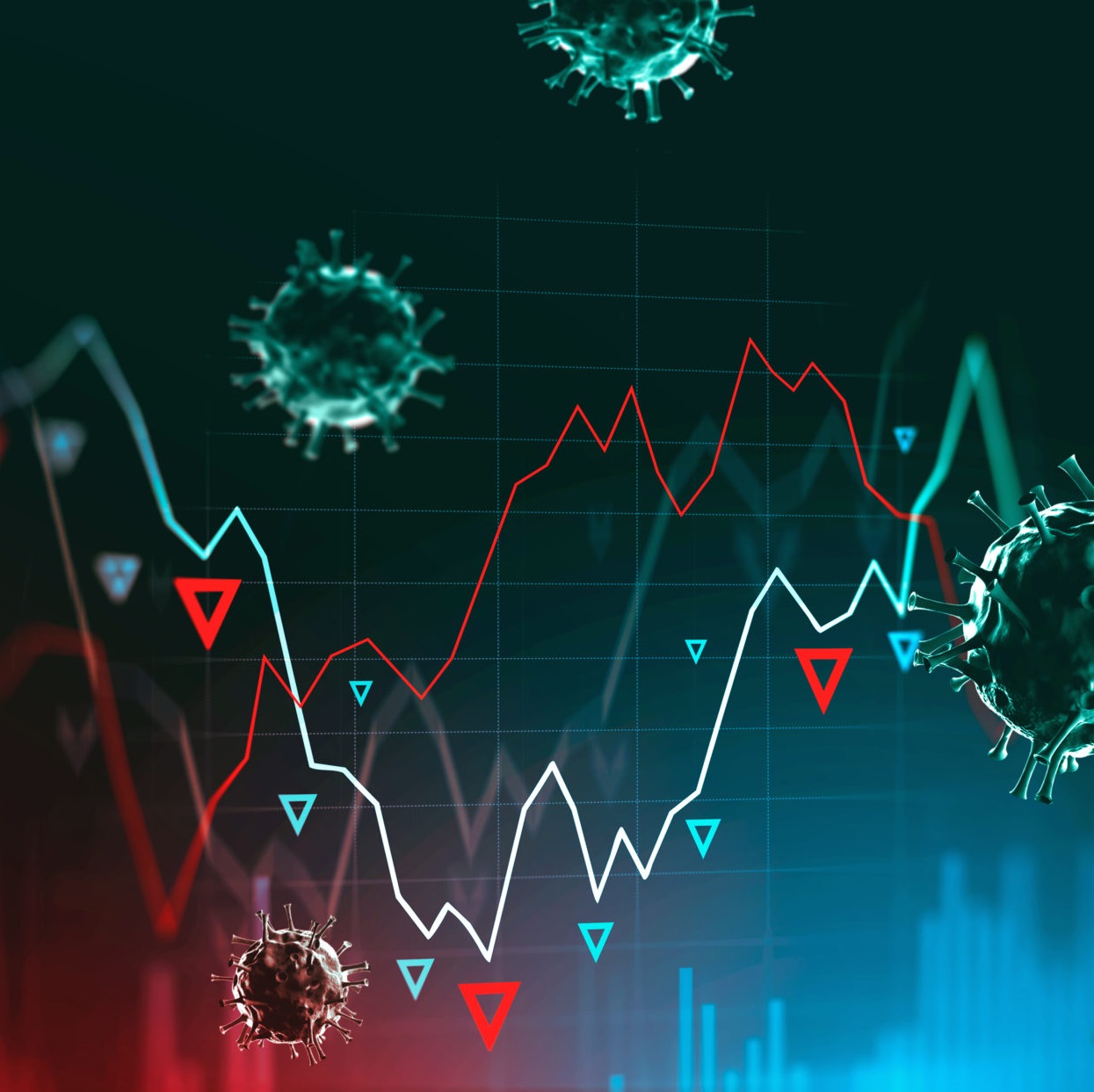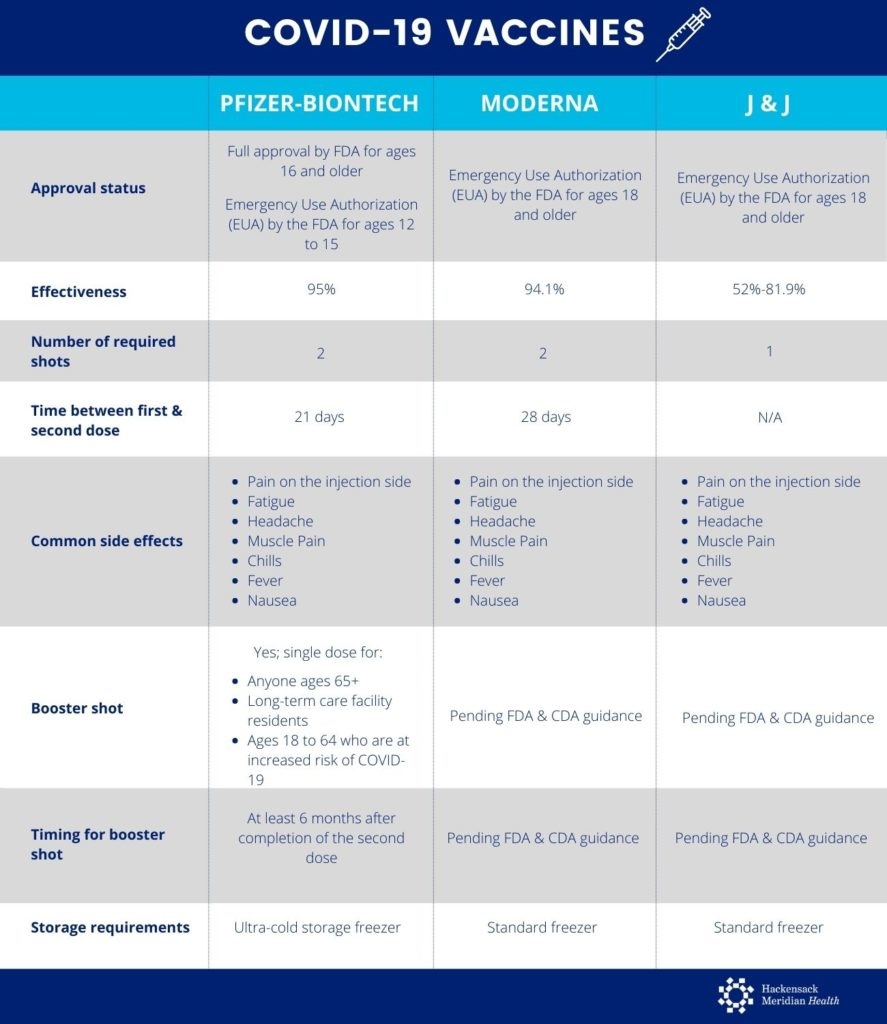

nd A year aa half into the pandemic, doctors, researchers and government agencies have shared volumes of information about COVID-19 with the public. With all this great information, it’s still easy to get confused by what you may hear from friends, or false claims that you see on social media.
Laurie Jacobs, M.D., director of the Hackensack Meridian COVID Recovery Clinic, has examined common COVID-19 myths, to see if there’s any truth behind the claims.
Claim: COVID-19 vaccines will give you COVID-19.
FALSE
None of the COVID-19 vaccines currently in development in the U.S. use the live virus that causes COVID-19. Some vaccines use an inactivated virus or viral vector, while others use new mRNA technology. The goal for each of the vaccines in development is to teach our immune system to recognize and fight off the virus that causes COVID-19.
Claim: You should get vaccinated even if you already had COVID-19.
TRUE
Experts do not know how long someone is protected from getting sick again after recovering from COVID-19. The immunity someone gains from having an infection is called natural immunity. Some early studies suggest natural immunity may not last long enough and varies from person to person based on their response to the virus.
One study from the CDC revealed that those who were unvaccinated and infected with COVID, were more than two times as likely to get COVID again, in comparison to someone who is fully vaccinated.
If you’ve previously been infected, the FDA has advised to wait until 90 days following your initial infection before receiving the vaccine.
The severe health risks associated with COVID-19 are significant across all ages, and as re-infection with COVID-19 is possible, you should consider getting a COVID-19 vaccine even if you’ve been sick with COVID-19 in the past. It is also currently unknown whether reinfections are associated with post-COVID syndromes, also known as “Long COVID.”
Claim: There are questionable ingredients in COVID-19 vaccines, including microchips or magnets.
FALSE
The active ingredient in the Pfizer and Moderna vaccines is mRNA, or messenger ribonucleic acid, molecules which affect the way that the body responds to immune system triggers.
The active ingredient in the Johnson & Johnson Janssen vaccine is a modified version of a harmless virus that delivers information about the genetic makeup of the novel coronavirus to cells in the body, so that the body can launch an immune response, creating protective antibodies against the virus.
COVID-19 vaccines also contain inactive ingredients, such as salts and acids, like other vaccines do. There are no metals or magnetic substances in the vaccines. There also aren’t any microchips or tracking technology. For details about exactly what’s in each vaccine, read more.
Claim: 5G technology spreads COVID-19.
FALSE
COVID-19 doesn’t spread through radio waves transmitted by cell phone towers; it passes from person to person, when someone coughs or exhales tiny droplets containing the virus and the particles reach the eyes, nose or mouth of another individual. Viruses can’t be transmitted through telecommunications networks.
Claim: People who get COVID-19 vaccines can still get COVID-19.
TRUE
COVID-19 vaccines offer protection against severe COVID-19 illness, but getting vaccinated does not 100 percent guarantee that someone will not get infected. In some instances, fully vaccinated people have tested positive for COVID-19, and they sometimes become sick. However, vaccinated people often have milder cases of COVID-19, which reduces their risk of being hospitalized or dying. The majority of people who are hospitalized and dying from COVID-19 today are unvaccinated.
CLAIM: Receiving an mRNA vaccine will alter your DNA.
FALSE
mRNA stands for messenger ribonucleic acid and can generally be described as instructions for your body on how to make a protein or even just a piece of a protein. mRNA is not able to alter or modify a person’s genetic makeup, or DNA. The mRNA from a COVID-19 vaccine never enters the nucleus of the cell, which is where our DNA is kept. Instead, COVID-19 vaccines that use mRNA work with the body’s natural defenses to safely develop protection (immunity) to the disease. Learn more from the CDC about how COVID-19 mRNA vaccines work.
Claim: COVID-19 or COVID-19 vaccines may affect someone’s menstrual cycle.
UNCLEAR
Some research suggests that some women who became ill with COVID-19 temporarily experienced changes to their menstrual cycles. Additionally, some women who received the COVID-19 vaccine reported that they experienced changes to their menstrual cycle. However, many factors which have been prevalent during the pandemic may cause someone to have irregular periods, including exposure to stress and getting more or less exercise than usual. More research is needed to determine whether COVID-19 or the COVID-19 vaccines directly affect the menstrual cycle.
Claim: COVID-19 vaccines can impair your fertility.
FALSE
No vaccines cause infertility, including COVID-19 vaccines. The vaccines also don’t have an effect on pregnancy. However, COVID-19 itself may cause serious health complications in pregnant women.
The Centers for Disease Control and Prevention recommends that all people aged 12 and older get COVID-19 vaccines, including pregnant women and people of childbearing age, because the vaccines protect people’s health without impacting their fertility status.
Claim: After getting a COVID-19 vaccine, you’ll test positive for COVID-19.
FALSE
People can’t test positive for COVID-19 after getting vaccinated, because the vaccines don’t contain live virus. Anyone who tests positive has been exposed to COVID-19 through other means.
It’s possible to test positive for COVID-19 antibodies which are directed against the “spike protein” after getting vaccinated, which are different than the antibody test and the antigen used for testing positive for illness. Having antibodies is a sign that you’re protected against the virus.
Claim: People who get COVID-19 vaccines “shed” the virus afterwards.
FALSE
It’s only possible to shed a virus if you have the virus in your system. Vaccinated people don’t have the ability to shed viral particles because COVID-19 vaccines don’t contain live COVID-19 virus.
People who are sick with COVID-19 may shed viral particles, which is why individuals who have the virus should isolate themselves at home.
Claim: Ivermectin should be used to prevent and treat COVID-19.
FALSE
Ivermectin is not approved or authorized by the FDA for the prevention or treatment of COVID-19.
Some studies have been conducted to evaluate the drug’s efficacy against COVID-19, however the data has been inconsistent, inconclusive and too small to be considered high quality. There is no reliable evidence that ivermectin should be used for COVID-19.
CLAIM: One COVID-19 vaccine is better than the other.
FALSE
All three COVID-19 vaccines are effective at protecting against the virus. Here’s a comparison:

Next Steps & Resources:
- Meet our source: Laurie Jacobs, M.D.
- To make an appointment with a doctor near you, call 800-822-8905.